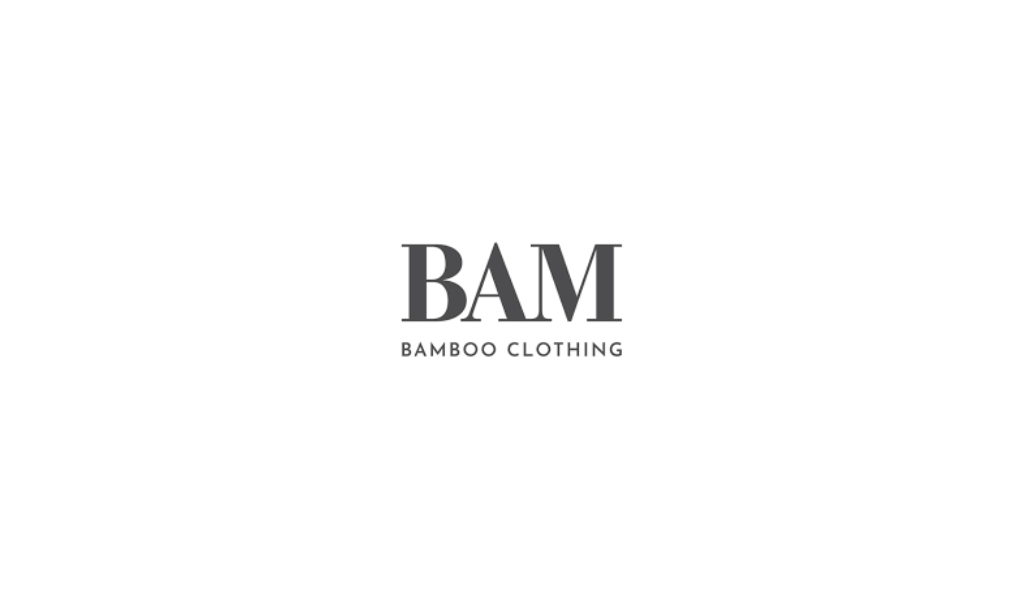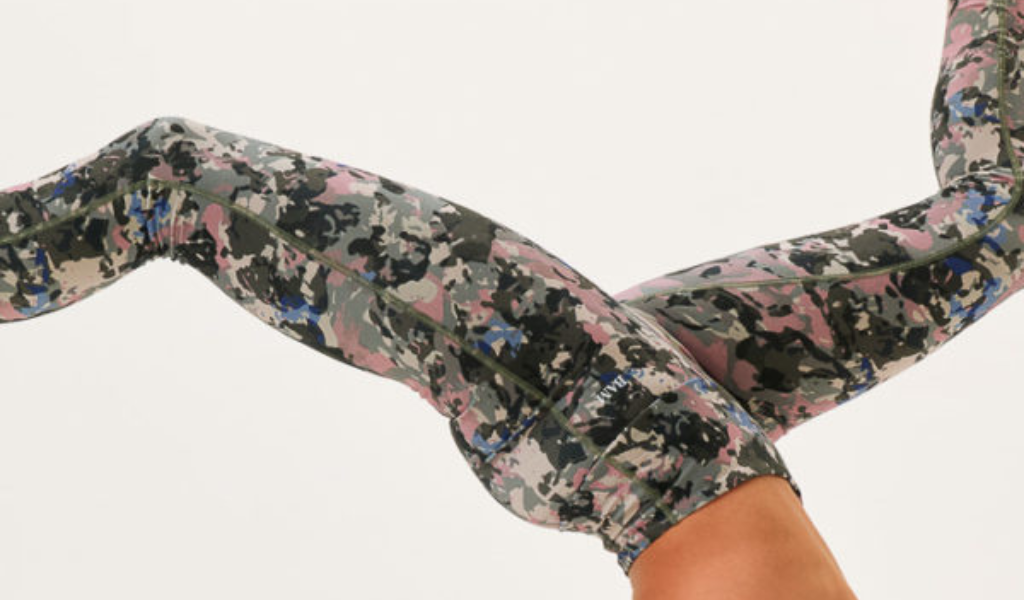7 Wildly Popular Activewear Brands Using Bamboo Fabrics
Many activewear and athleisure brands in the market put sustainability at the core of their business. Today's consumer demands their purchases have a conscience and not destroy the environment.
Yet, the majority of activewear brands struggle to balance environmental demands with top-line revenue and performance requirements of their garments.
The truth is though, eco-friendly materials and fabrics often have desirable performance characteristics that make them an even better choice than traditional materials like cotton, such as bamboo fabric.
Notable breakout brands using bamboo include:
Boody
Cariloha
ONNO
BAM
tasc
Movesgood
Free Fly Apparel
Bamboo fabrics seamlessly blend sustainability with performance - not only is bamboo a relatively sustainable fabric that's much easier on the environment than some natural and synthetic fibers, but it also creates comfortable and breathable clothing - which is perfect for activewear.
For this reason, an increasing number of activewear brands are utilizing bamboo fabrics and blends in their sustainable approach to garments we'll dive into the seven brands above, and show you how bamboo is helping them beat the competition.
7 Trending Activewear Brands That Use Bamboo Fabrics
Eco-materials don't have to be limiting or inferior to synthetic fibers. That may have been the case a decade ago, but it's a different scenario today.
As bamboo manufacturing processes have become more refined, the resulting fabrics are now on par with man-made fibers in terms of quality and performance.
Not only that, but they often offer unique benefits that even synthetic fibers can't match. The following brands are successfully harnessing the power of bamboo fabrics for their activewear lines.
1. Boody - Sustainable, Eco-Friendly Clothes
Boody offers activewear and leisure wear for women, men, and babies. While they use a mix of eco-materials, the brand's garments are made primarily out of bamboo viscose fabric. Boody combines both comfort and performance in their clothing while still doing its best to protect the environment.
Boody's Sustainability Lens:
While bamboo viscose is the least sustainable method for creating bamboo fabrics, due to its chemical processing, it's certainly a more sustainable textile than virgin polyesters and nylons.
Bamboo viscose enhances the technical attributes of Boody's products.
For example, bamboo viscose material creates clothing that is:
Super soft
Breathable
Odor resistant
Thermoregulating
Fashion aside, Boody also knows sustainability is important. As such, Boody sources purely organic bamboo to create their fabrics and certifies that no pesticides or fertilizers are used in farming.
The company also has a long list of environmental certifications and partners. For example, working with the Fashion Forever Green Pact and Ecocert amongst many others.
Bamboo is already renowned for its minimal requirements for fertilizers and pesticides, but attaining certifications for organic bamboo is the only way to know this for certain, which Boody has done.
Bamboo Activewear Spotlight:
Boody’s Racerback Sports Bra is made out of 79% Bamboo Viscose.
2. Cariloha - Bamboo Clothing, Apparel & Accessories
Cariloha offers men's and women's apparel as well as bed and bath items made primarily out of bamboo fabric. The brand's taken the sustainability advantages of bamboo to heart and even owns its bamboo fields in China, which is incredibly unique for a DTC brand.
Cariloha's Sustainability Lens:
Cariloha’s bamboo fields cover over 10 square miles and contain more than 61 million bamboo plants.
Additionally, bamboo is farmed completely organically. This is an increasingly important part of what consumers are looking for in sustainable apparel, that is, consumers want brands to not only source eco-materials, but to make the entire supply chain sustainable or at least as environmentally friendly as possible.
One major benefit of bamboo, regardless of the application in clothing or some other industry, is that it's a regenerative resource, meaning after it's harvested, it doesn't require reseeding but will simply continue to grow.
Bamboo plants also give back to the environment by stabilizing soil structure and health and capturing more carbon dioxide per square inch than trees. Plus, bamboo is a much less thirsty plant than say cotton.
Those are just a few of the many reasons to love bamboo, but since Cariloha owns its bamboo acreage, it's able to grow one of the most sustainable plants in the most eco-friendly ways.
Cariloha also prides itself on its awards and partnership with environmental agencies such as the Sustainable Forestry Initiative and Forest Stewardship Council, which you might remember from the Sports Casuals article on modal fabrics, is a certification for sustainably harvesting cellulose.
Bamboo Activewear Spotlight:
Cariloha’s Long-Sleeve Crossover Hoodie is made of 70% Viscose from Bamboo.
3. ONNO T-Shirt Company - Bamboo, Hemp, + Organic
ONNO is a T-shirt company for men and women that only uses sustainable fibers from both bamboo and hemp.
Hemp is another fiber that's incredible for the environment but also carries performance attributes that surprise most people - like it gets softer but stronger every time you wash it, or that it's naturally antimicrobial, to name a few.
But as it relates to bamboo, ONNO found that bamboo fabric creates a super comfortable, durable, and lightweight T-shirt that's ideal for both strenuous activity and gentle relaxation.
The brand went as far as creating a proprietary blend of fibers called ONNOCELL. While standard bamboo viscose material is generally silky and vibrant, ONNOCELL has a distinctive worn touch and feel.
ONNO's Sustainability Lens:
Additionally, ONNO uses bamboo because of the sustainability profile of the raw material. Bamboo is a highly productive and extremely fast-growing grass, with one species even growing 3 feet in a day. Yes, a day. Using bamboo and hemp in the brand's shirts puts less strain on the environment to create clothing.
ONNO goes one step further and buys carbon offsets to combat the shipping and distribution processes they can’t make green - which is a fantastic way to support a supply chain that can't flex with sustainability, or a supply chain transitioning to a more sustainable solution.
This is thankfully becoming more common practice for brands that understand the importance of environmental responsibility and garment manufacturing. And since adjusting a supply chain doesn't happen overnight, buying carbon offsets is the next best thing.
Although not a new entrant to activewear, STRONGER has gained incredible popularity in the past couple of years. And the brand is actively purchasing carbon offset as well.
ONNO also works with small, family-owned factories and operates by the Global Organic Textile Standard.
Bamboo Activewear Spotlight:
ONNO's mainstay, Bamboo T-Shirt, is made out of 70% viscose from bamboo, and the other 30% is certified organic cotton.
4. BAM Bamboo Clothing - Yoga Clothing, Base Layers, Sustainable
BAM makes women’s and men’s apparel (including some of the best socks on the market) primarily from bamboo. The brand covers activewear and athleisure but brings comfort and flexibility to garments outside of those two categories.
BAM’s founder is a medal-winning pole vaulter who places high value on performance and sustainability. This goes a long way in explaining how the brand rose to fame for its wide array of yoga clothing as well as base layers in athletic apparel.
At a technical level, BAM's clothing is super soft and comfortable. Yoking the benefits of bamboo clothing, for activewear, bamboo is also highly absorbent and odor-resistant.
This is a welcomed technical benefit for anyone sweating, aka practicing yoga or working out. The natural antimicrobial properties of the bamboo plant help fight the bacteria that cause sweat to smell.
BAM's Sustainability Lens:
BAM is focused on being an environmentally sustainable clothing brand and combating the fact that most fashion practices are very harmful to the environment.
To ensure that the bamboo used in its clothing is truly eco-friendly, BAM sends its sustainability experts to inspect all pieces of the supply chain - this includes the bamboo forests, the pulp production facilities, the fiber producers, and the ultimate manufacturing facilities.
But the sustainability benefits of bamboo are just one side of the equation.
Bamboo Activewear Spotlight:
BAM’s Enduro Bamboo Deep Waisted Leggings are made of 64% Bamboo Viscose.
5. tasc Performance - Sustainable Bamboo Activewear
tasc offers a large assortment of men's and women’s activewear with a focus on using sustainable fibers. The brand has a high degree of vertical integration, blurring the line between the retailer, manufacturer, and researcher.
tasc's product lineup is massive, which you might expect when you have so much control over the manufacturing of your products.
While bamboo is an important eco-material used in garment production, organic cotton is the primary raw material used by tasc. Regardless, 75% of the brand's products come from natural fibers.
tasc's Sustainability Lens:
Unlike many other clothing brands that rely on outsourced synthetic fibers with little transparency into production practices, tasc has complete control over the process, which means they primarily need to source fibers rather than fabrics.
Similarly, tasc has developed proprietary treatments of their fabrics rather than relying on chemical performance treatments made by third parties. This is a major advancement for eco-friendliness and an area where many brands lose sustainability scores.
tasc trademarked a process called BamCo, that enhances the comfort, durability, and other already likable benefits of bamboo fabrics. Simply put, BamCo takes what everyone loves about bamboo fabrics and makes them better.
Most of tasc's clothing with bamboo relies heavily on bamboo viscose to break down the fiber into a pulp, which again, is not the most sustainable method for turning bamboo fibers into bamboo fabrics.
Bamboo lyocell and mechanical manufacturing of bamboo is a far more environmentally friendly way to create bamboo garments.
Bamboo Activewear Spotlight:
tasc’s Nola Tank is made of 43% bamboo viscose.
6. Movesgood - Bamboo Lyocell Eco-Friendly Basics
Movesgood sells “slow fashion” lounge, knitwear, and swimwear for men and women, but also has some activewear offerings that are gaining massive popularity of late. Expect the activewear line to expand in the upcoming seasons as a result.
The brand's line of knitted clothing is unique because it blends bamboo fabric with other materials like wool to create a better environmental and fashion outcome. For instance, bamboo cashmere is one of the more popular blends they offer in knitwear.
While this isn't necessarily activewear, it's an interesting material to take notice of nonetheless.
What sets Movesgood apart from the other bamboo brands on this list so far is its use of bamboo lyocell.
What is Bamboo Lyocell?
Bamboo lyocell is a type of rayon made by dissolving cellulose fibers of bamboo in an organic solvent, with a closed-loop process. It's known as one of the most sustainable fabrics due to the eco-friendliness of raw materials and processes, retaining many of the technical benefits of bamboo fabric.
Movesgood Sustainability Lens:
Movesgood’s clothing uses bamboo lyocell as the main fabric - of the three types of bamboo processing methods outlined in Sport Casuals' article regarding bamboo sustainability, bamboo lyocell is a far more sustainable process than bamboo viscose.
The use of bamboo lyocell eliminates the need for harsh chemicals in the bamboo fabric production process. This is a major selling point for Movesgood and one of the main reasons the brand has been able to achieve GOTS organic certification.
Bamboo lyocell is still absorbent, breathable, and retains a soft feel, making it ideal for activewear. The only drawback to lyocell is that it's not as durable as other bamboo fabrics, but this can be overcome with proper garment construction. Which is exactly what Movesgood has done.
Thankfully, Movesgood’s clothing is also easy to care for. Items that are made out of bamboo lyocell can be washed in warm water up to 60°C.
Bamboo Activewear Spotlight:
Movesgood's Polo Shirt is made of 95% bamboo lyocell.
7. Free Fly Apparel - Bamboo & Sun Protective Clothing
Free Fly Apparel, also known casually as Free Fly, is a bit of the "Casper" in the everyday activewear direct-to-consumer space. The brand's trajectory mimics that of Allbirds, Tom's, or any other apparel and accessory DTC in the past 15 years that's been through explosive growth.
Free Fly creates versatile and sustainable performance clothing for men, women, and kids. Created as a solution to sun exposure while one of the co-founders was fishing, the company has successfully built a fanatic following for its bamboo-based products.
At the start, the brand experimented with fabric choices before settling on natural bamboo because of its inherent comfort and UPF ratings.
Free Fly's Sustainability Lens:
Free Fly uses certified organic bamboo to create performance clothing that emphasizes comfort and versatility. Bamboo clothing is lightweight and flexible to move, making it the perfect choice for activities from fishing to watersports.
Since bamboo delivers natural UV protection without the need for additives or chemicals, this was was an ideal fabric for the mission of the garments.
Free Fly's clothing was made to move under the sun - and that means sweat, so the anti-microbial and moisture-wicking properties of bamboo fabric work harder than others.
Bamboo Activewear Spotlight:
Free Fly’s Bamboo Fleece Pullover Hoody is made with 67% bamboo viscose.
7 Remarkable Activewear Brands Embrace Bamboo Fabrics
These seven brands (and many others) rely on bamboo fabrics to create high-quality and high-performing activewear clothing.
There are many favorable environmental reasons to use bamboo to create clothing, it's been a major focus of this entire article after all. But throughout, you've surely noticed the performance benefits of bamboo garments as well, attributes that make them uniquely suited for activewear and general sportswear.
Here's the shortlist of all the performance attributes that make bamboo an incredible fiber for active apparel.
Performance Attributes of Bamboo Apparel
Why is bamboo so good for activewear clothing? Let’s recap some of the technical performance benefits that bamboo fabric lends to clothing.
Bamboo fabric in all its forms is:
Lightweight
Breathable
Antimicrobial
Moisture-wicking
Smooth and soft
Durable
Resistant to wrinkles
UV protective
And more!
For the full list and a detailed look at the technical benefits of bamboo activewear, check out the Sport Casuals' article "Is Bamboo A Good Fabric For Clothing? Is Bamboo Good For Activewear?"
Sustainability And Performance Aren't Mutually Exclusive
These seven bamboo activewear brands are experiencing rapid growth by producing some of the most comfortable, versatile, and durable clothing on the market. But they're also doing it in a way that's sustainable and has a positive environmental impact.
It just goes to show that you don't have to choose between performance and sustainability - with bamboo, you can have both.
In other words, your consumers' yoga pants can look good, perform well, and be good for the environment.















